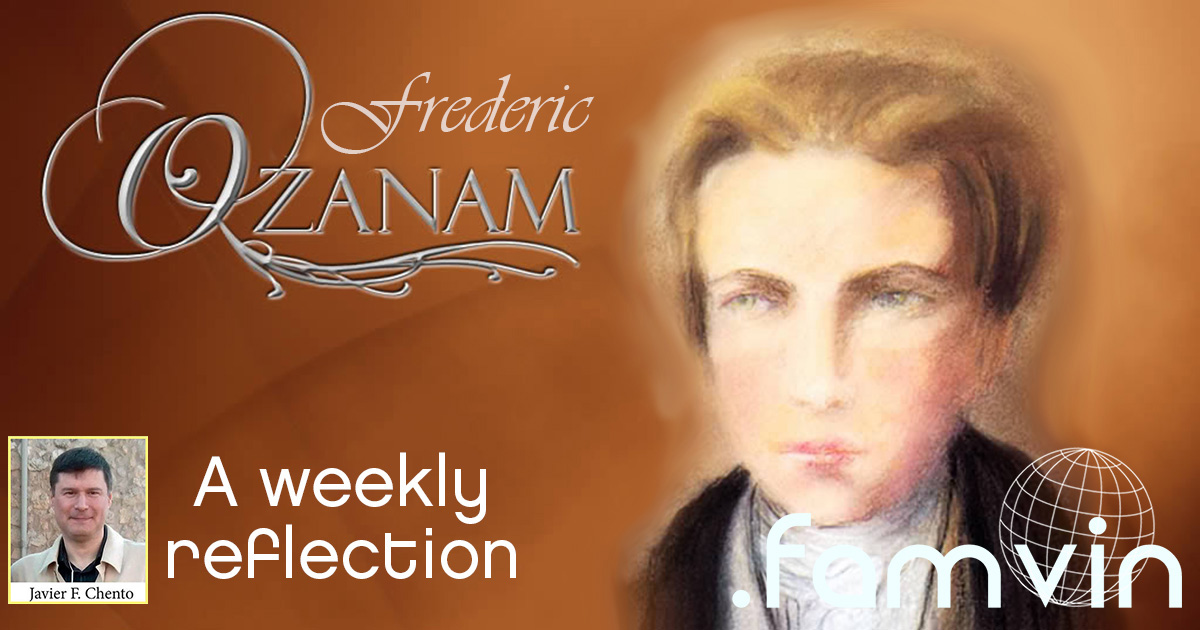Those who have the privilege of distributing the public help […] go, for instance, to the twelfth arrondissement, one of the strongholds of the insurrection, and out of about ninety thousand inhabitants they find eight thousand families inscribed on the list of the benevolent fund, twenty-one thousand nine hundred and ninety-two who receive extra help, making a total of some seventy thousand individuals who are living on the precarious bread of alms. Half of this district, all the Montagne Ste. Genevieve, and all the neighborhood of the Gobelins, is composed of narrow, crooked streets, where the sun never penetrates, where a carriage could not venture without risk, and where a man in a coat never passes without making a sensation, and attracting to the doorsteps groups of naked children and women in rags.

Frederic Ozanam, article «Aux gens de bien» [To good people], in L’Ère Nouvelle, nº 151, September 15, 1848.
Reflection:
- 1848 was a particularly convulsive year for France. In February, a people’s insurrection forced King Louis Philippe of France to abdicate, giving way to the Second French Republic, which would last only about four years. From February to April, a provisional government took over the management. On April 23, the first elections to the National Assembly were held — the first with universal male suffrage: the female vote will not be a rellity until the middle of the 20th century —. As a result of these elections, a conservative government took the power, whose first unpopular measures provoked protests during the so-called “Journeys of June” (June 23 to 26, 1848). The workers took the streets of Paris and built barricades, and they were harshly repressed by the military. From then on the government became, if possible, even more authoritarian and conservative.
- Poverty and precariousness are palpable in Paris. The thinker and economist Victor Considérant (1808-1893) said that Paris was, at that time, “an immense workshop of rot, where poverty, plague and disease work together, where the air or the sun barely penetrates. Paris is a bad place where plants wither and perish, where of seven young children six die in the year” (Victor Considérant, Destinée sociale, Paris: Libraires du Palais-Royal, Bureau de la Phalange, 1834, volume I, page 462). Although there may be some exaggeration in the data presented, there is no doubt that the situation was far from ideal.
- This is the context in which the article, that we are going to meditate for the next few weeks, was written by Ozanam and published in the newspaper l’Ere Nouvelle, on September 15, 1848, entitled “To the good people,” a plea to the population in favor of the most needy in France and, specifically, Paris. The outline of the article is simple: after showing the reader the stark reality of the poor and the working class, he will ask that each social class, each state, offer their best efforts to alleviate the needs of the poor.
- The first part of the article shows the reality that Frederic knows well. His many visits to the poor in their homes allow him to speak with the authority of his own experience, setting many examples of what he has seen.
- The first sentence already show us what is the dominant feeling in the author: “Those who have the privilege of distributing the public help.” Frederic considers it an honor, a privilege to serve the needy. From his faith, based on the “eminent dignity of the poor” (see Pius XII, speech of March 30, 1941), who are the suffering face of Christ, he appears before the needy as a servant, and assists them as if he was doing it with the same Jesus Christ. Again, that text of Matthew 25 takes on a fundamental preponderance: “I was hungry… I was thirsty… I was naked…” The answer we give to these questions, no doubt, measure our degree of Christian commitment, from the charism that we inherited from St. Vincent de Paul.
Questions for dialogue:
- Do I live as a privilege to serve the poor?
- Let’s comment on this sentence of Pope Francis: “Our faith in Christ, who became poor, and was always close to the poor and the outcast, is the basis of our concern for the integral development of society’s most neglected members.” (Evangelii gaudium, no. 186). What consequences does this statement have in our lives?
- Do I know the most degraded neighborhoods of my city? Do I visit them? Am I aware of the situation of the poor in them? What do we do to relieve it? Could we do more?
Javier F. Chento
![]() @javierchento
@javierchento
![]() JavierChento
JavierChento






0 Comments